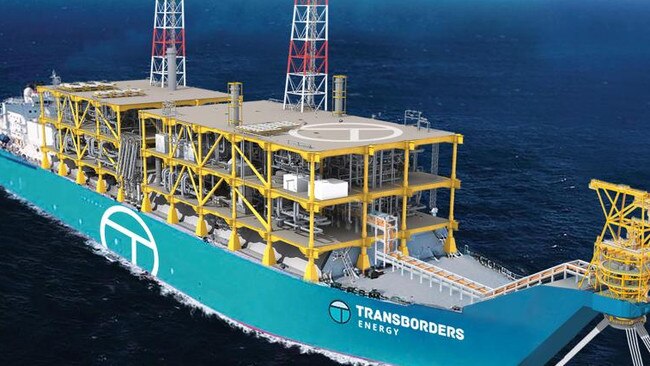Gas export revenue plunges
Australia’s gas export revenue plunged by more than half in July from a year earlier.

Australia’s gas export revenue plunged by more than half in July from a year earlier, as lower prices hit one of the nation’s biggest commodity earners while shipments continued to suffer delays amid a supply glut, consultancy EnergyQuest said.
Income from LNG exports fell by 52 per cent to $1.98bn in July, from $4.2bn in the same month last year — with revenues down a third on $2.98bn recorded in June — as the effect of the oil crash took hold.
LNG, which typically has a three-month lag before reflecting changes to crude prices in contracts, has seen spot prices in Asia recover in recent weeks from all-time lows, partly due to fears supplies from the Gorgon plant in WA may be curtailed. Still, they remain 40 per cent lower than a year ago and at levels that are uneconomic for some high-cost producers in Australia.
“The decrease in revenue is a result of the lower export volumes seen during July and a significantly lower lagged oil price. Revenues are now really showing signs of the falling oil price,” EnergyQuest chief executive Graeme Bethune said.
The trend for LNG exports to suffer delays being shipped to buyers has also continued, although at lower levels than in June.
Some 21 of the 85 gas export cargoes from Australia were delayed in July, with ships either remaining at port or going round in circles before reaching their destination. It compared with 33 delayed cargoes in June and 41 in May.
Australian government forecasts show LNG revenues are set to plummet by 26 per cent to $34.9bn in 2020-21, from $47.4bn last year, as the biggest oil crash in a generation flows through to contract prices for the fossil fuel.
LNG supplies were relatively steady at 5.8m tonnes in July across the 85 shipments, compared with 5.9m tonnes in June, although still a sharp dip from 7m tonnes spread across 102 cargoes last year.
The revenue slump continues a torrid period for Australia’s biggest LNG producers, who have been hit by a swag of damaging writedowns with Woodside, Origin Energy, Oil Search and Shell all taking impairments worth more than $10bn on the value of the nation’s major gas plants.
East coast gas producer Senex Energy, which operates in Queensland’s Surat Basin and South Australia’s Cooper Basin, said on Wednesday it expects to record a $52m writedown on its Cooper Basin assets at its annual results on August 24.
The impairment was “due to a material downward revision in oil price assumptions resulting from the effects of the COVID-19 pandemic on energy market fundamentals,” Senex said in a statement. “Senex has reduced its long-term Brent oil price assumption to $US62.50 a barrel from the 2025 financial year and is forecasting a slower recovery to these levels over the short to medium-term.”


To join the conversation, please log in. Don't have an account? Register
Join the conversation, you are commenting as Logout